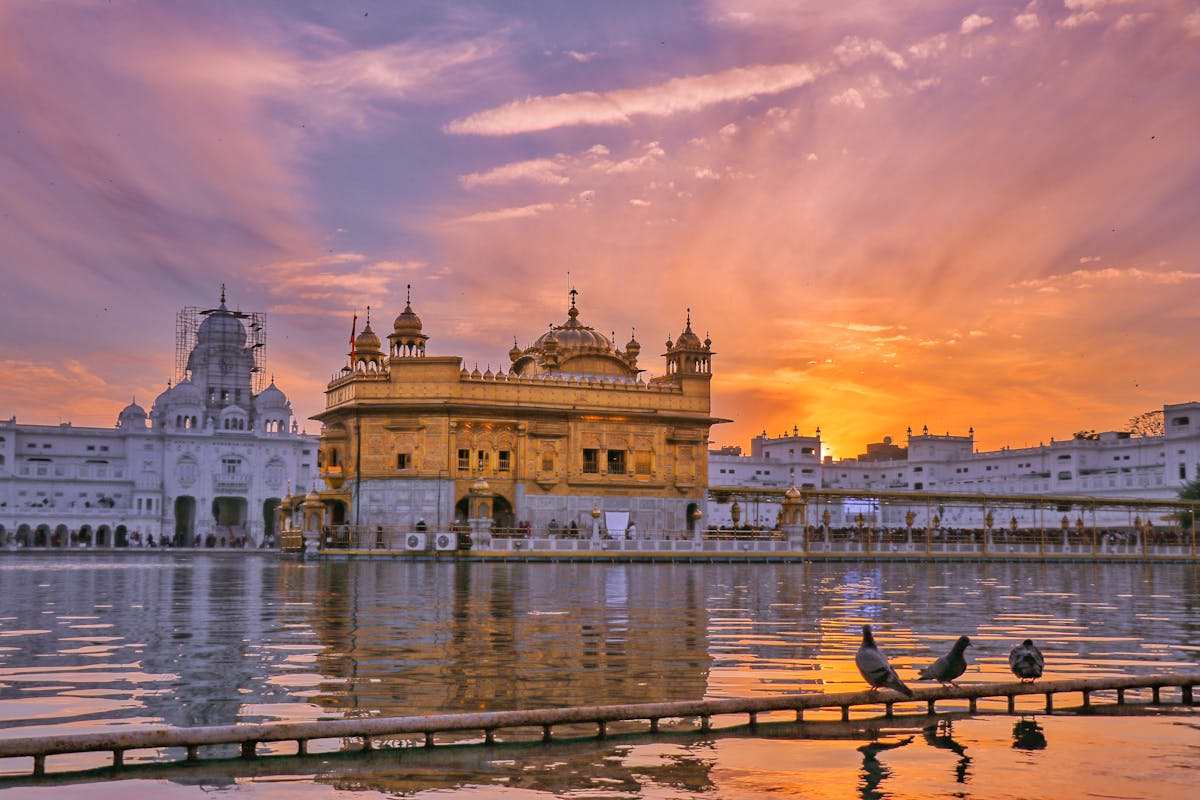The Evolution of Religious Tourism in India - India Report

Skift Take
Did you know: In 2022, the number of domestic tourists who visited Indian pilgrimage sites was more than India’s population – 1.43 billion.
There has been a surge in spiritual tourism post-pandemic, a new report by consulting firm KPMG says. The Vaishno Devi temple in Jammu and Kashmir, for instance, is now visited by about 32,000 to 40,000 pilgrims a day, up from 10,000-15,000 daily visitors before Covid. A similar phenomenon has been observed at the Golden Temple in Amritsar and the Guruvayur temple in Kerala.
Speaking with Skift earlier this year, Uttar Pradesh tourism deputy director said that the tourism in the state is witnessing an increase largely due to religious tourism and infrastructural developments. She said that Uttar Pradesh’s tourism industry transformed after the inauguration of the Kashi-Vishwanath corridor in Varanasi in December 2021.
“After that, in 2022 and 2023, a total of about 130 million tourists visited the pilgrim city. The success from this project was also implemented in other parts of the country, including Ujjain in Madhya Pradesh,” she said.
In its report, KPMG shared that Varanasi received 71.6 million visitors in 2022, and about 122 million in 2023.
Evolution of Religious Tourism: The report highlighted the factors that are enhancing the concept of religious tourism:
- Technology is being used to transform how pilgrims access information about the sites. Travel bloggers are playing a key role in helping devotees discover new religious sites to visit.
Virtual pilgrimages have also been introduced, especially during the Covid period. Post-pandemic, virtual pilgrimages have continued in the form of live streaming of religious ceremonies, online viewing of deities, and 360-degree virtual tours. - Pilgrims are also combining religious visits with medical treatments or wellness retreats, as ayurvedic centers, yoga retreats, and spiritual healing practices being integrated into religious tourism offerings.
- Improvement in connectivity and supporting infrastructure is also boosting traffic to religious sites. “The improved physical accessibility to destinations, Ecosystem of travel and facilities like hotel to stay, amenities, tours and travel packages have helped visitors in making impromptu decision to travel to any destination,” the report said.
- Youth are increasingly being interested in spiritual tourism, not only due to spiritual inclination but also because of the desire to understand the history of these sites. This is leading to a diversified approach of including preservation of these sites, education programs, and immersive cultural experiences to the concept of religious tourism.
Lakshadweep Gains Indian Tourists as Maldives Visitors Decline
Lakshadweep archipelago in India has been gaining popularity among Indian tourists, while visitors to Maldives have declined after diplomatic tensions flared between the two countries earlier this year. In the April to June quarter this year, the Agatti airport in Lakshadweep handled about 23,000 passengers, more than double from the same period last year.
The surge in visitors to Lakshadweep came as flight services and seat availability increased due to more frequent operations by Alliance Air, and commencement of services by IndiGo and Fly91. Compared to last year, there was an 88% increase in the number of flights to Agatti, the only airport in Lakshadweep.
On the other hand, there was a nearly 50% decline in the number of Indian tourists during the quarter from last year, while Chinese tourists surged. Consequently, China became the top source market for Maldives in the first half of 2024, taking over India, which fell to sixth place.
Foreign Tourist Arrivals Remain Lower Than Pre-Covid Levels
International tourists in India in the first six months of 2024 stood at about 4.78 million, up 9% from last year. However, the figure was 10% less than pre-Covid levels of 5.3 million. The decline has come even as the international footfall at Indian airports has increased close to 10% in the April to June quarter this year, compared to 2019.
Meanwhile, foreign exchange earnings have increased by 5.5% from 2019. This means that international spending has increased.
Last month, World Travel and Tourism Council (WTTC) had said that in 2023, international visitor spending in India was over 14% less than pre-Covid levels, while projecting a 17% increase in the figure this year.
Zimbabwe Aiming to Make India Its Top Source
In 2023, more than 17,000 Indian tourists visited Zimbabwe. The country is confident that this figure will double in 2024, Tongai M Mnangagwa, Deputy Minister of Tourism and Hospitality Industry for Zimbabwe, said during his recent visit to India.
Earlier this year, Zimbabwe announced visa-on-arrival for Indian nationals, eliminating the need for any prior documentation. Mnangagwa said that the country is focusing on attracting all tourist segments in India, observing that most Indian tourists are young and prefer adventure activities.
India is currently the eighth largest source market for Zimbabwe. The minister is hopeful that the marketing initiatives would help boost India to become the first or second-largest source market.
E-Pass for India-Pakistan Border in Jaisalmer Launched
The Border Security Force (BSF) has launched an e-pass facility for Indian tourists visiting the India-Pakistan border in Jaisalmer. Tourists can visit the Shri Tanot Mata temple website and register for the e-pass after furnishing their details and submitting the IDs needed.
The move is aimed to reduce the queues at the BSF counters at the temple, where tourist registrations currently take place. The facility is only available to Indian tourists, as foreign tourists require prior permission from government officials to visit the border.





